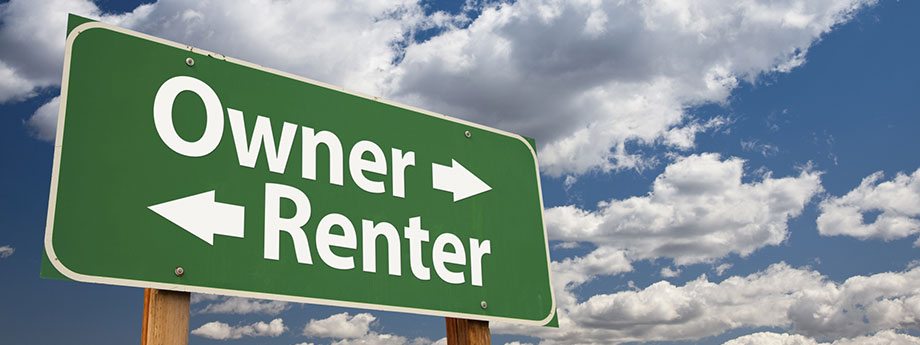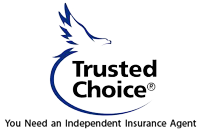 When choosing between buying a house or renting, you may benefit from considering the following questions from our partners at Trusted Choice®.
When choosing between buying a house or renting, you may benefit from considering the following questions from our partners at Trusted Choice®.
Approaching the decision with as much information as possible can be helpful.
Do You Have Enough Saved for a 20% Down Payment?
This is one of the most important factors to take into consideration. Sure, you do not need a 20 percent down payment to acquire a mortgage; many mortgage companies will accept 10 percent and FHA loans can be had for as little as 3.5 percent down. However, there are a number of financial advantages to having the full 20 percent.
Mortgage companies will require you to pay private mortgage insurance if you do not have at least 20 percent invested in the house. PMI is typically 0.5 percent of your total owed. You will need to pay PMI until you have paid your mortgage down enough that you have 20 pecent of the house’s value built up in equity. This is money you are throwing away.
Let’s take an example of a $150,000 house. Let’s assume that you put 20 percent down on a 30-year mortgage at 5 percent interest:
- If you make your scheduled payments every month for 30 years, you will end up paying a total of almost $112,000 in interest.
- While that may seem like a lot, let’s look at an alternative situation. Suppose you buy that same house with the same mortgage terms but only put 10 percent down. Not only will your payments increase by $80 each month, but you will also end up paying more than $121,000 in interest plus about $4,400 in PMI.
- By waiting until you have the full 20 percent down payment, you can save yourself more than $13,000.
In this case, renting while you save up enough money to put 20 percent down makes sound financial sense.
Will You Be Moving in the Next 5Â Years?
Buying a home is a great way to build up equity; but if you need to sell that home within a few years of buying it, it is possible that you will lose that equity and then some. This is because if you sell your house through a realtor, you will need to pay the realtor’s fees, which typically run about 6 percent of the home’s value.
Many financial advisers refer to the “Five Year Rule†of homeownership. This basically states that unless you plan to retain ownership of your house for at least five years, it may not be a sound financial investment. There are ways around this, of course.
If you want to buy a house but expect to move within a few years, buy at the lower end of what you can afford and make extra payments. By doing this, you can reduce the total principal owed at a much faster rate, enabling you to profit through the sale of the house.
How Much Your Monthly Mortgage Payments Will Actually Be?
If you have been considering home ownership, you may have gone online and looked at some realtor’s listings or you may have used a mortgage calculator to get an idea of how much your monthly payments will be.
When you look for houses on sale, you may see something like “Only $900/month.†What you are looking at, however, is almost always an estimated mortgage payment based on 20 percent down on a 30-year mortgage. If you are unable to put that much down on the house, you can expect the mortgage payment to be higher.
Also not included in that quoted cost are other monthly expenses such as school and other property-based taxes, homeowners insurance costs and PMI if you are not putting a full 20 percent down. So that seemingly manageable $900/month could actually be more like $1,300/month.
Be sure to consider the extra costs of home ownership before deciding whether making the switch from renter to home owner is a cost-effective decision.
Can You Afford Home Repair and Maintenance Costs?
Owning a home can be expensive. This is something that many first-time home buyers learn the hard way.
If you are used to renting, you may be spoiled by the ease with which you can have problems fixed. If the air conditioner stops working or your oven conks out, you need only call your landlord or the apartment manager and they will usually have it repaired or replaced quickly.
When you own your home, however, appliance breakdowns will necessitate that you pay for repair or replacement costs out of your own pocket. If you are living on a tight budget after purchasing your house, this can be cause of financial hardship.
Do You Enjoy Doing Yard Work?
Many people enjoy the freedom of having their own yard in which to plant a garden, do landscaping projects and enjoy dinner outdoors. For others, the need to mow grass, trim hedges and rake leaves is a never ending chore. If you enjoy working outdoors, you may benefit from purchasing a home with a yard that can keep you busy year-round.
If yard maintenance is not your thing, you may be better off either renting or buying a condo or townhome where outdoor areas are maintained by the condo association.
Can You Benefit From Deducting Your Mortgage Interest?
Interest on home mortgages is deductible, but the deductibility doesn’t offset the fact that you are paying someone interest. It’s an expense. The ability to list mortgage interest on your itemized deductions may be beneficial to you.
However, many people, particularly those with children, find that even when they add in their mortgage interest, their standard deduction exceeds the itemized deduction, so mortgage interest has no bearing whatsoever on their taxes.
If you are buying a home simply for the mortgage interest deduction, you may not be doing yourself any favors. Make sure that you have other, more compelling reasons. Talk to your accountant first because the actual benefit from a deduction varies from family to family.
Do You Want the Freedom to Renovate to Your Liking
This is one of the many advantages to home ownership. In most cases, those who rent their house or apartment are limited by the property owner on home improvements they are allowed to make. Some landlords won’t even let tenants put nail holes in the walls.
If you do not like the pattern in the carpeting or the color of the paint in your rented home, you must live with it. As a home owner, however, the you can do what you like with the property.
There Are No Right or Wrong Answers
Regardless of whether your rent or own your home, our independent Trusted Choice agents  can help you find an affordable home insurance policy that covers your personal property. Let’s talk today.




Leave a Comment